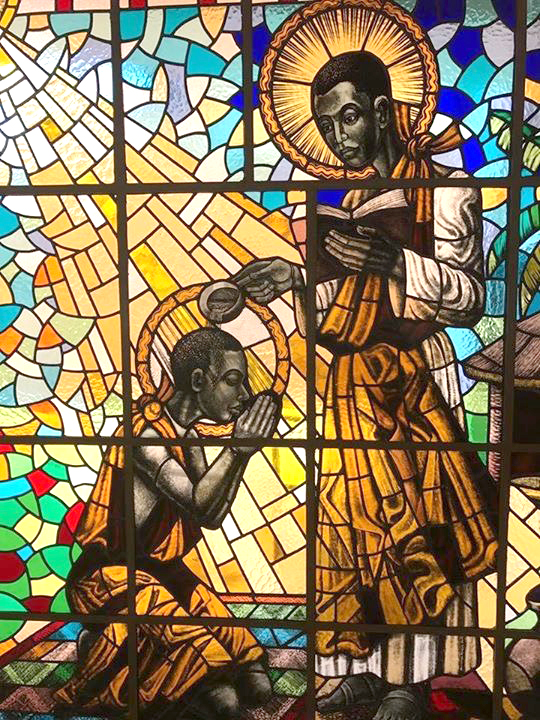 February 16, 2025
February 16, 2025
Sixth Sunday after the Epiphany
“Finding Blessing”
The Beatitudes in Matthew’s gospel are one of the most popular pieces of Scripture. They present an image of a transformed society under the rule of God where everything that is wrong with the world as we know it has been made new. They are inspiring, revolutionary and hopeful, and throughout Christian history we’ve re-told them in song and in readings and in prayer. These are truly some of the church’s favourites.
But we’re not reading from Matthew’s gospel. We did that two years ago. This time, we’re reading from Luke’s gospel, and in some ways it’s quite different. You still get the positive vision of a blessed world: “blessed are you who are poor … who are hungry … who weep … who are hated, excluded, reviled and defamed …” Under God’s rule all those things will be turned upside down. The wording is a bit different in Luke, but not THAT different. No one really knows whether Jesus preached the same sermon more than once (which wouldn’t be surprising for an accomplished preacher then or now!), or whether the differences just reflect the ways that oral tradition adjusted memories in the re-telling.
If the story stopped there, it likely wouldn’t matter which version we read. But it doesn’t. Luke doesn’t stop with promising blessing. He also predicts “woe.” “Woe to you who are rich … who are full now … who are laughing now … who are spoken well of …”
What’s that all about?
Is this really good news, or is it a curse? Is this predicting God’s punishment on evil doers, or just a natural consequence of failing to catch the vision? Is this cause to gloat over the impending misfortune of the people we think are hurting us, or is this a signal that we need to roll up our sleeves and ensure that even our enemies don’t get left out in the cold?
“Punishment” and “consequence” are two radically different things, though we often confuse them. Punishments are imposed by an external authority to teach us a lesson. Taking away a child’s cell phone could be a punishment. And sometimes we try to make “the punishment fit the crime” so closely that we try to describe the punishment as a consequence: “if you keep texting during school hours you’ll lose your privileges.” But natural consequences are not punishments; they’re not intended to teach a lesson. I dropped my cell phone a few years ago and the screen cracked. The crack in the screen wasn’t a punishment, it was just something I had to live with as a result of my own clumsiness. Whatever lesson I might have learned from that (I do use a better screen protector now!) wasn’t the PURPOSE of the event.
So … are the “woes” here to be considered as God’s punishment on the rich … or simply natural consequences of focussing only on our own needs? Are the “woes” here at threat that God will make life nasty for sinners, or simply a warning that when we don’t live by the rule of God life ends up being less rich, less joyful, less fulfilling. Should we be avoiding sin because God will “get us,” or because a life grounded in caring and service ultimately leads to better things for us as well as for the people around us?
What if we stopped trying to threaten people into being “good,” and instead tried to entice them? What if we reached out to those chasing after money and toys and power with a richer vision of what makes for a good life? What if those “woes” are really a warning about consequence, rather than a threat of punishment?
If that’s what Jesus meant by “woe to you,” do you think it’s true? Does living a life of care and service ultimately lead to blessing? Has that been true in your life, or the lives of those you respect? How do we live out that vision of blessing not just for ourselves, but for the world around us? And when we do that, what are the consequences for us?
Join us on Sunday as we wrestle with Jesus’ woes as well as his blessings!

 forest hill
forest hill